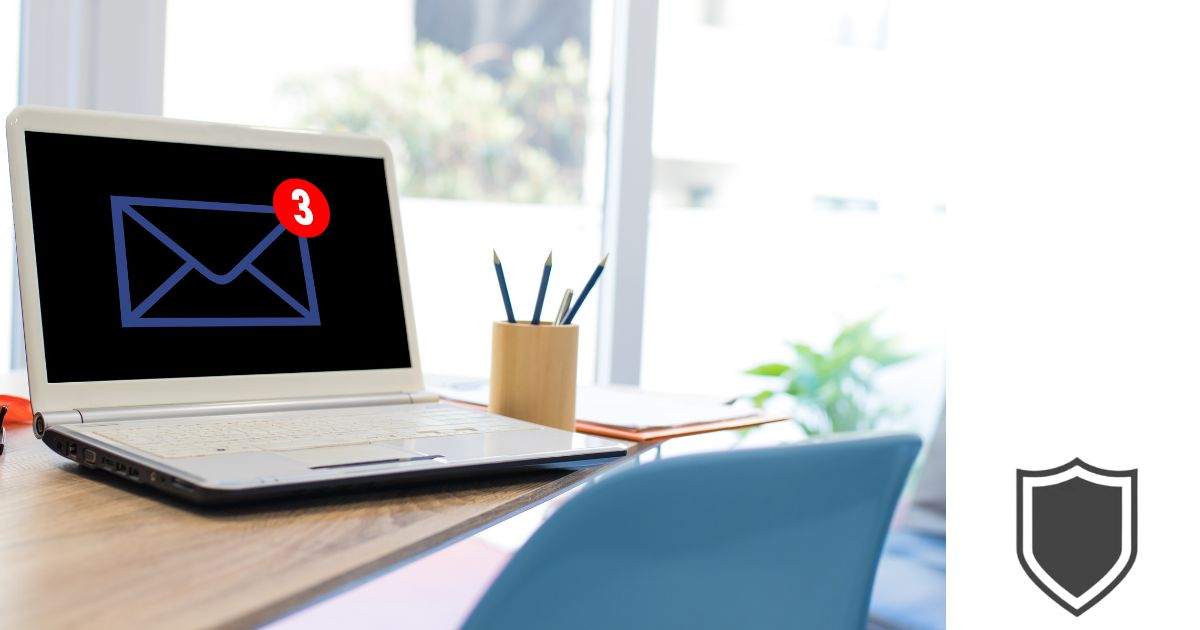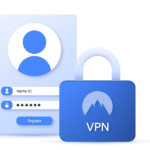Greetings, fellow privacy enthusiasts! I’m Dr. Edward Baldwin, your dependable authority on cybersecurity.
Today, we’re diving deep into the waters of ProtonMail. You might have heard of it – the email service that’s been turning heads in the security world.
But what makes ProtonMail Security tick? And, more importantly, how does it keep your messages safer than Fort Knox?
Stick around, because we’re about to unwrap the magic behind ProtonMail’s digital armor. Let’s get started!
Table of Contents
What is ProtonMail Security?
As someone who prioritizes privacy and security in communication, I was quite pleased to find ProtonMail, a service known for its robust security features.
When I started using this email provider, I appreciated its commitment to protecting my data by employing strong end-to-end encryption. This ensures that my messages remain secure from prying eyes and third-party entities.
I also learned that, unlike some other email services, ProtonMail adheres to a zero-access architecture.
This design keeps my email content fully encrypted even when it’s stored on their servers, meaning that only I and my intended recipients can access and decrypt its content.
This level of privacy is reassuring, especially when discussing sensitive matters with others.
Another essential aspect of ProtonMail security is its use of open-source cryptography.
By making their encryption methods transparent to the public, experts can review and verify the security strength of their system.
This trustworthiness and reliability are further reinforced by the fact that the company’s operations are protected by Swiss privacy laws, which maintain high standards for the protection of personal information.
In addition to these features, ProtonMail secures connections with SSL encryption, ensuring that data is transmitted safely between devices and the service itself. With this extra layer of security, I can have peace of mind that my private communications remain private.
Overall, my experience with ProtonMail has shown me that the security features it offers are effective in maintaining privacy and protecting against potential threats. As a user, I feel more confident that my email communications are as secure as possible.
ProtonMail and Privacy
Now, I’ll discuss a few key aspects of ProtonMail’s privacy policies, which include not requiring personal information, their IP logging policy, and Swiss privacy laws.
No Personal Info Required
One of the things I like about ProtonMail is that they don’t require any personal information when creating an account. This means I don’t have to provide my name, address, or phone number, which helps keep my identity private. By doing so, they greatly reduce the risk of my information getting into the wrong hands.
IP Logging Policy
ProtonMail takes IP logging seriously. As a privacy-conscious user, I’m reassured by their policy of not logging my IP address when I use their service. This protects my location and online activities from being tracked or linked to my email account. This puts my mind at ease knowing my privacy is prioritized.
Swiss Privacy Laws
Finally, ProtonMail is based in Switzerland, a country known for its strong privacy laws. This means that my data is protected by some of the strictest regulations in the world. As a user, I appreciate how Swiss privacy laws require ProtonMail to uphold a high standard of security, ensuring that my data remains safe and private.
End-to-End Encryption
How It Works
As a ProtonMail user, I can confidently say that end-to-end encryption (E2EE) is one of its most important security features.
In simple terms, E2EE encrypts data at every stage of its journey from my device to the recipient’s device. This means that when I send an email, it’s encrypted on my device and isn’t decrypted until it reaches the recipient’s device.
This process effectively protects the information from eavesdroppers and third parties.
Benefits of Encryption
There are several benefits to using end-to-end encryption with ProtonMail:
- Privacy: E2EE ensures that only I and the intended recipient can read my messages, protecting my conversations from prying eyes.
- Security: With E2EE, my data is encrypted at every stage of the process, making it virtually impossible for hackers or unauthorized parties to intercept and decipher the content.
- Versatility: ProtonMail allows me to send encrypted emails not only to other ProtonMail users but also to non-ProtonMail users by using the password-protected emails feature.
Limitations of Encryption
While E2EE is a powerful security tool, there are some limitations I should consider:
- Adoption: In order to enjoy the full benefits of E2EE, both the sender and recipient need to use a compatible service like ProtonMail. If the recipient isn’t using an encrypted email service, the protection may be less robust.
- User responsibility: The security of my encrypted emails also depends on how well I safeguard my ProtonMail password and encryption keys. If I don’t take care of my security measures, the whole system can be compromised.
Two-Factor Authentication
I love the extra security provided by ProtonMail’s two-factor authentication (2FA) feature. With 2FA enabled, even if someone gets hold of my password, they won’t be able to access my account without a second authentication method. I find this reassuring as I know my emails and data are secure.
Setting up 2FA on ProtonMail is simple. All I do is enable it through the account settings, by going to Settings → All settings → Account → Account and password → Two-factor authentication. ProtonMail supports both 2FA authenticator apps and hardware security keys.
For authenticator apps, I can choose from popular options like Authy, Google Authenticator, and FreeOTP, available on both iOS and Android. To pair my authenticator with ProtonMail, I just need to scan a QR code displayed on the settings page. Once that’s done, my app generates a six-digit code that I must enter when logging in.
On the other hand, if I prefer using a hardware security key, ProtonMail supports YubiKey and other U2F/FIDO2-compliant keys. This method requires me to insert my physical security key when prompted during the login process.
Apart from offering protection against unauthorized access to my account, two-factor authentication helps me be at ease knowing my sensitive information is much safer. Just remember to keep your authentication method safe and always double-check your account settings.
Physical Security Measures

Data Center Security
Their primary data centers are located deep within the Swiss Alps, in former military bunkers. This ensures that unauthorized access is virtually impossible. Not only do these data centers offer top-notch security, but they also benefit from Switzerland’s strict privacy laws. I find this gives me peace of mind knowing my emails are well protected.
Data Redundancy
Another essential aspect of ProtonMail’s physical security is data redundancy. In case something goes wrong or there’s a hardware issue with one of their data centers, they’ve got multiple backup systems in place. This means that I can trust my emails to be safe and readily available, even in the unlikely event of a catastrophe at one of their primary data centers. It’s nice to know that ProtonMail puts such a high priority on ensuring the continuity of their service.
Protonmail Security Policies

Here’s a brief overview of their security policies.
Data Retention
Protonmail has a clear privacy policy designed to protect user data. They store as little personal data as necessary and enforce strict limitations on data retention. For instance, they do not keep any IP logs by default, which helps protect user privacy and maintain a secure email environment.
In addition, Protonmail retains email data on their servers until users decide to delete it. Upon account deletion, Protonmail removes all user data from their servers. It’s essential to know that once an account is deleted, there’s no way to recover the data.
Data Recovery
Although Protonmail provides a secure and encrypted environment, it’s still crucial for users to understand the importance of data recovery. In case accidental deletion happens or a device is lost, having backups of essential data can be a lifesaver.
I recommend using Protonmail’s export feature to create backup copies of emails, contacts, and calendars in a secure offline environment. Regularly updating these backups ensures that the most recent data is available for recovery in case of any mishaps.
Remember, it’s essential to protect these backups with strong passwords and encryption to prevent unauthorized access. By following these practices, I can be confident that my Protonmail account remains both secure and accessible in the event of unexpected occurrences.
Comparing ProtonMail with Other Providers

ProtonMail vs. Gmail
I’ve found that ProtonMail offers end-to-end and zero-knowledge encryption, providing robust security when compared to Gmail. However, Gmail does offer a larger selection of features, such as Google integration, calendar, and Google Drive.
When it comes to privacy, ProtonMail is the clear winner. Gmail is known to analyze emails to create targeted ads, while ProtonMail does not invade your privacy in this way.
Conversely, Gmail is more versatile and has many users, making it more convenient for those who prioritize compatibility with other apps.
ProtonMail vs. Outlook
Between ProtonMail and Outlook, there’s a trade-off between security and functionality. ProtonMail’s end-to-end encryption is a major advantage in terms of security, while Outlook offers integration with Microsoft Office apps for increased functionality.
While ProtonMail limits users to sending 150 emails per day, Outlook allows for higher limits, which can be beneficial for enterprise users.
Furthermore, ProtonMail’s user experience is more streamlined, making it easier to navigate, whereas Outlook might take some time to master. In terms of privacy, ProtonMail is a stronger option, but it ultimately depends on the user’s priorities.
ProtonMail Security Issues

Known Vulnerabilities
ProtonMail is known for its strong security features, such as end-to-end encryption and zero-access encryption standards. However, there have been some vulnerabilities in the past. One notable limitation is that email subject lines are not encrypted.
This means that the content of your email is still secure, but the subject may be exposed to potential interceptors.
Additionally, ProtonMail utilizes phone number verification which may not be ideal for users who wish to remain completely anonymous. Although this method helps to ensure the security of user accounts, it could be seen as a potential privacy concern by some users.
Addressing Risks
Despite these vulnerabilities, ProtonMail continuously works to improve its security features and minimize risks. They do this by following a strict security checklist for new account owners that includes using independently audited, open-source cryptography, and ensuring all connections are SSL secured.
It is important to remember, though, that no system is 100% secure, and ProtonMail is no exception. As a user, I can take precautions to further enhance my security by using strong, unique passwords and enabling two-factor authentication.
Using ProtonMail Securely
Now let’s discuss some best practices, how to avoid scams, and what to do if you encounter any problems while using ProtonMail.
Best Practices
To use ProtonMail securely, it’s important to follow these practices:
- Enable two-factor authentication (2FA): This adds an extra layer of security by requiring you to input an additional code besides your password when logging in.
- Use end-to-end encryption: When communicating with other ProtonMail users, your emails are encrypted by default. For non-ProtonMail users, add a password to encrypt the email using the External encryption button (with the lock icon).
- Keep your devices safe: Be aware of your physical security, always set a password for your devices, and protect them from theft or unauthorized access.
Avoiding Scams
To protect yourself from phishing or other scams:
- Be cautious of suspicious emails asking for your ProtonMail login details. ProtonMail will never request your password.
- Check the sender’s email address for any discrepancies before clicking on links or providing information.
- Don’t click on links in emails from unknown sources or download unexpected attachments.
Reporting Problems
If you encounter issues or suspect any suspicious activity, report them to ProtonMail through the following:
- Use the in-app “Report phishing” button in the email if you received a phishing email.
- Contact ProtonMail’s support team if you suspect security vulnerabilities or have other concerns.
By following these guidelines and staying vigilant, you can ensure that your ProtonMail experience remains secure and private.
How ProtonMail Protects Users’ Rights
As a ProtonMail user, I appreciate the strong security measures in place to protect my privacy and rights. One fundamental feature is end-to-end encryption. This ensures that only the sender and receiver can read the content of an email, preventing unauthorized access by third parties, including ProtonMail itself.
Another important aspect contributing to ProtonMail’s security is the zero-access encryption. This means that all data is encrypted while stored on ProtonMail servers, so even if they were hacked, the attacker would not be able to read the email content.
ProtonMail also prioritizes data protection by having its servers located in Switzerland. Due to the country’s strict privacy laws, my data stays well-protected from invasive government surveillance and data exploitation.
In addition to these safety measures, ProtonMail maintains a minimum amount of tracking. This means they store very little personal information about me, adding another layer of protection to my privacy.
Lastly, ProtonMail is completely open-source, which allows its cryptography and system architecture to be independently audited. This ensures the system is secure and transparent, without any hidden vulnerabilities or weaknesses.
In my experience using ProtonMail, these features have greatly contributed to my trust in their service. I feel secure knowing my data and privacy are well taken care of.
The Final Word
Alright, folks, let’s wrap this up. After our deep dive into ProtonMail Security, one thing’s clear: this isn’t your ordinary email service.
With its robust encryption and a commitment to privacy, it’s a beacon for those who prioritize their digital safety.
Remember, in today’s online world, choosing the right tools makes all the difference.
And ProtonMail? Well, it’s definitely up there with the best. Stay safe, stay informed, and as always, here’s to a more secure digital tomorrow.
ProtonMail Security FAQs
How does ProtonMail compare to Gmail?
As a ProtonMail user, I find the biggest difference between ProtonMail and Gmail lies in their approach to security and privacy. ProtonMail focuses on end-to-end encryption and zero-knowledge encryption, meaning your emails are safe from third parties, even ProtonMail itself. Gmail, on the other hand, is known for its reliability and integration with the Google suite of apps, but it doesn’t offer the same level of security features as ProtonMail.
What makes ProtonMail a secure email provider?
ProtonMail’s security features include end-to-end encryption, minimal tracking of personal identifiable information, independently audited open source cryptography, zero access architecture, and SSL secured connections. These features assure me that my data stays private and secure.
Can ProtonMail protect my emails from hackers?
While no system can guarantee 100% security, ProtonMail significantly reduces the chances of emails being intercepted by hackers. The use of end-to-end encryption, as well as two-factor authentication using hardware security keys like YubiKey, gives me extra confidence in my account’s security.
Are there any drawbacks to using ProtonMail?
ProtonMail is a fantastic secure email provider, but I have noticed that its storage and feature offering can be limited in their free version. Additionally, some users might miss the convenience of integrating ProtonMail with other popular productivity tools like Google Calendar and Google Drive.
Do you have to pay for ProtonMail?
ProtonMail offers a free version with basic features and limited storage (500 MB). However, for a more complete experience, they offer paid plans with additional features like custom domain support and increased storage. I find the free version good enough for casual use, but I’d recommend upgrading to a paid plan if you need more storage or advanced features.
Has ProtonMail faced any controversies?
In the past, ProtonMail has faced some challenges and controversies related to user privacy and data requests. However, these issues have not significantly impacted their commitment to providing a secure and private email service. As a user, I am aware that no system is perfect, but I trust ProtonMail to continuously strive to uphold their strong security and privacy standards.
- Your Guide to ProtonMail Security: Expert Takes & Tips - May 2, 2025
- Best Free VPN Chrome Extension: Top Picks for Secure Browsing - May 2, 2025
- Customized Security: Your Guide to the Best Dedicated IP VPN - May 2, 2025










